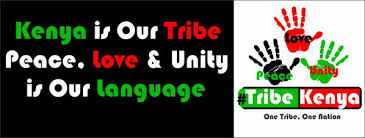As we near the end of our project we have another Guest Blog for you, this time by Wambui Karanja. Wambui is in her final year at Kenyatta University, undertaking a BA in Psychology. She volunteers at Alzheimer’s and Dementia Organization Kenya and is the regional coordinator for World Young Leaders in Dementia. Her interests are in dementia policy, and ageing. She is also a YALI fellow and former undergraduate volunteer at the BIEA.
After the post-election violence in 2007, the country became much more aware of the role of politics in dividing up Kenyans along ethnic lines during elections. This realization has led to various efforts to unite Kenyans in order for them to embrace their national identity especially during elections. Olubayi (2007) states that dimensions of Kenya’s national culture such as national constitution faith, national consciousness and national ideologies are evolving. He adds that a national culture of unity is emerging in Kenya, this is in addition to and not in place of the 50 ancient ethnic cultures of Kenya. To promote this national culture, campaigns have emerged that aim to forge national unity, using slogans such as, “One Tribe, One Kenya”, “Tribeless Youth” and “Tribe Peace.”
Eifert, Miguel and Posner (2007) state that politicians are more likely to mobilize voters  at election time. Politicians use ethnic appeals in voter mobilization, this means that around the time of elections, people have greater ethnic attachments than at other times Elections have thus become a major threat to building a united national culture, which in the Kenyan constitution is emphasized by a united Kenya that recognizes existence of individual tribes that practice different cultures.
at election time. Politicians use ethnic appeals in voter mobilization, this means that around the time of elections, people have greater ethnic attachments than at other times Elections have thus become a major threat to building a united national culture, which in the Kenyan constitution is emphasized by a united Kenya that recognizes existence of individual tribes that practice different cultures.
The campaigns around unity that emphasize “One Tribe, One Kenya” are important in reminding people of the importance of national unity and national culture. But do they decrease the ethnic attachment during elections? It is hard to tell, but they are needed. I believe that it’s more important to preach co-existence and diversity of opinion than to homogenize a multiethnic nation by calling it “Tribe Kenya.” Creating tolerance and coexistence of different cultures will build a more cohesive society that acknowledges differences, but sees them as strengths.
Campaigning for “Tribe Kenya” is hypocritical since it fails to recognize the diversity that  exists and is crucial in building a national culture. While it’s well intentioned, it’s misinformed. . It ignores that ethnic identities are as important to the Kenyan people as their national identity is important to them. To preach peace and emphasize tribal belonging ignores a lot of factors relating to why violence might occur after or around the time of elections. Is violence always ethnically motivated?
exists and is crucial in building a national culture. While it’s well intentioned, it’s misinformed. . It ignores that ethnic identities are as important to the Kenyan people as their national identity is important to them. To preach peace and emphasize tribal belonging ignores a lot of factors relating to why violence might occur after or around the time of elections. Is violence always ethnically motivated?
Ethnic politics has played a role in creating tension around the time of elections, but it is lack of trust in national institutions that leads to conflict.
To have a strong national culture requires strong national institutions that are nonpartisan, follow the rule of law and that the people trust. When people trust the Kenyan institutions then they believe that they can raise their voices and be heard; and when an institution makes a decision, it’s seen as for the good of all people no matter what their ethnic origin is.
A campaign that preaches national unity only by virtue of being Kenyan fails to recognize the importance of ethnic culture in building up a united national culture.
Considering people have a heightened awareness of their own ethnicity at election time “One Tribe, One Kenya” and other such campaigns fail to address the importance of teaching tolerance of different ethnic cultures as they practice a united national culture. As Audre Lorde argued, we can’t manage difference by ignoring it and claiming it doesn’t matter.
Chapter One Article 11 of the constitution recognizes culture as the foundation of the nation, does preaching “Tribe Kenya” respect this article of the constitution or does it defy it for its own agenda? Or is it in good faith to promote the national culture?
“One Tribe,One Kenya” isn’t enough for creating a united national culture that will stand the political storm of elections, it needs a new narrative that recognizes the differences, and embraces them as the foundation of a united national culture. As Olubayi says,“to inhabit this overarching supra ethnic national culture of unity does not preclude a Kenyan from maintaining a full ethnic identity”. Calls for unity and cohesion need to look back and see that the reason there was a need to call for unity in the first place was because there was a division. Ignoring the causes of the division and calling for unity simply because one is Kenyan is like fixing a bullet hole with a band aid.



…is like fixing a bullet hole with a band aid.
Really good, Wambui.
LikeLike